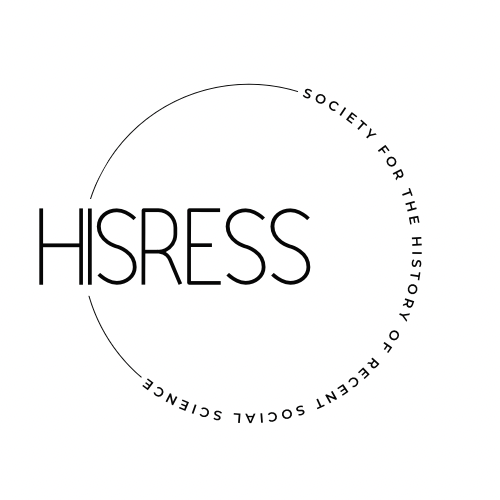HISRESS 2024
University of Pennsylvania, 31 May & 1 June
Room 300, Annenberg School for Communication
8:45 am – 9 am
Welcome and introductions
9 am – 9:50 am
Fighting Poverty with Policy: The Center for the Study of Welfare Policy and the Battle for the Poor (Chris Loss)
10 am – 10:50 am
Studying the Cop ‘like a slum youth:’ The Police Problem in Postwar US Social Science (Patrick Reilly)
10:50 am – 11:10 am
Coffee Break
11:10 am – 12 pm
Less Social or Less Intercalated?: Rethinking the Periodization of the Recent Social Sciences via the History of Prevention Science (Theo Di Castri)
12:10 pm – 1 pm
The Factory and the Farm: Efficiency, Productivity, and the Emergence of Management Studies (Kena Wani)
1 pm – 2:30 pm
Lunch
2:30 pm – 3:20 pm
“At the Skin’s Edge”: Hildred and Clifford Geertz, Otherness, and the Craft of the Ethnographer (Matteo Bortolini)
3:30 pm – 4:20 pm
From the Field to the Self. French Anthropology, Social Psychiatry and the Ambiguous Study of Acculturation in the Age of Decolonization, 1950–1980 (Joshua Klein)
4:20 pm – 4:40 pm
Coffee Break
4:40 pm – 5:30 pm
Racism’s Legacy in Anthropology: Ethical Dilemmas in Human Remains Identification and the Quest for Reparation (Thiago Barbosa & Amanda Domingues)
7 pm
Conference Dinner
9 am – 9:50 am
We Were Distinguished Misfits”: The Clash of Two Knowledge Cultures at the Harvard Kennedy School of Government (Lucian Bessmer)
10 am – 10:50 am
The Possibility of Moral Autonomy: Stanley Milgram, Lawrence Kohlberg, and the Psychological Study of Morality in Cold War America (Erick Luckey)
10:50 am – 11:10 am
Coffee Break
11:10 am – 12 pm
Psychology Hits the Road: Driving Simulators, Advertising, and Hypnosis on the Highway (Jonathan MacDonald)
12:10 pm – 1 pm
Peering into Intimate Spaces: Psy Scientists and their Observations of Child Rearing Practices in Uganda (1940–1970s) (Pokhara Oduro-Bonsrah)
1 pm – 2:30 pm
Lunch
2:30 pm – 3:20 pm
Pedagogy for Young and Old (Jamie Leach)
3:30 pm – 4:20 pm
Craving: Hunger and Hedonism in post-war America (Dana Simmons)
